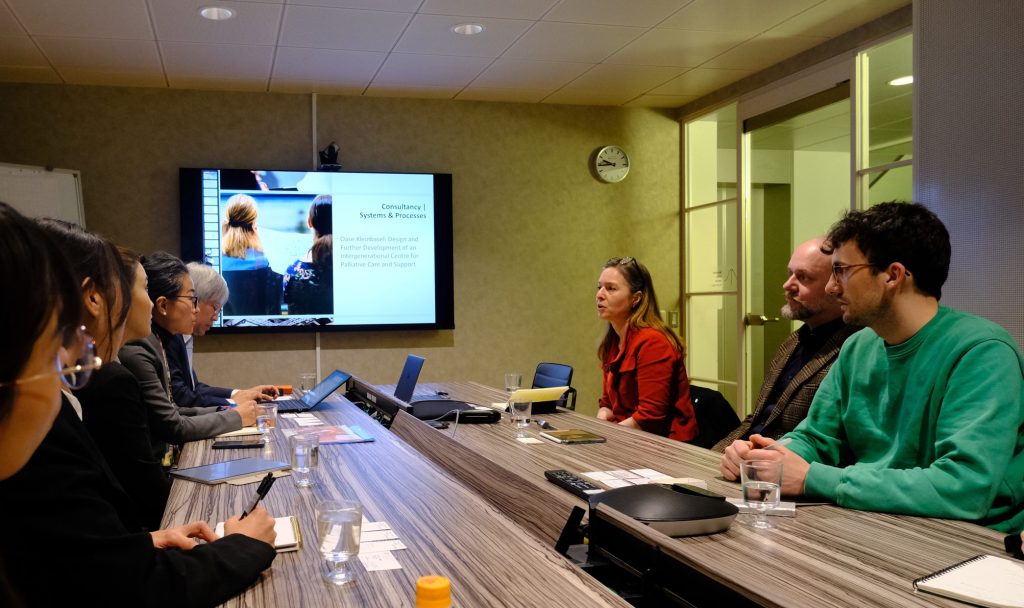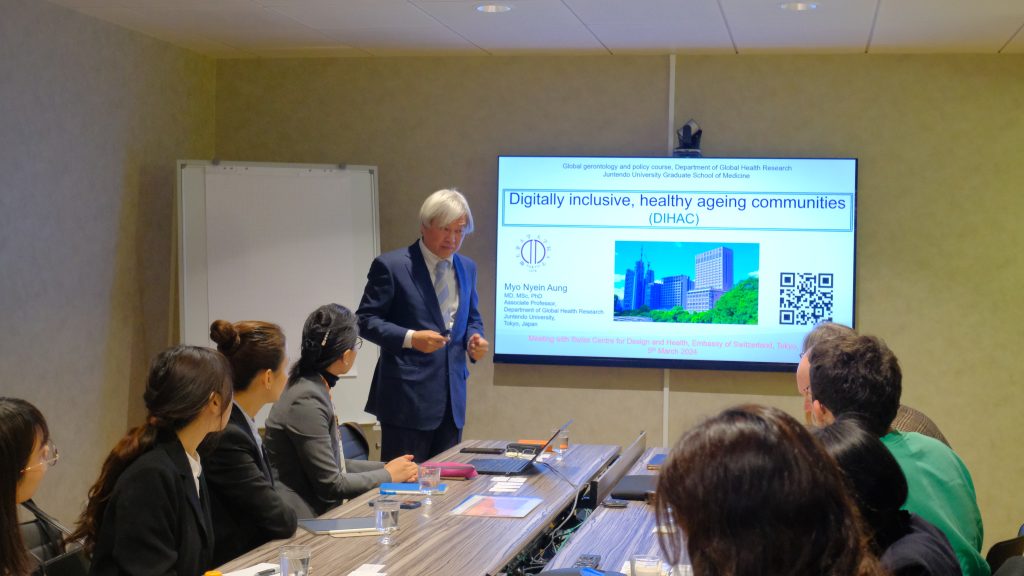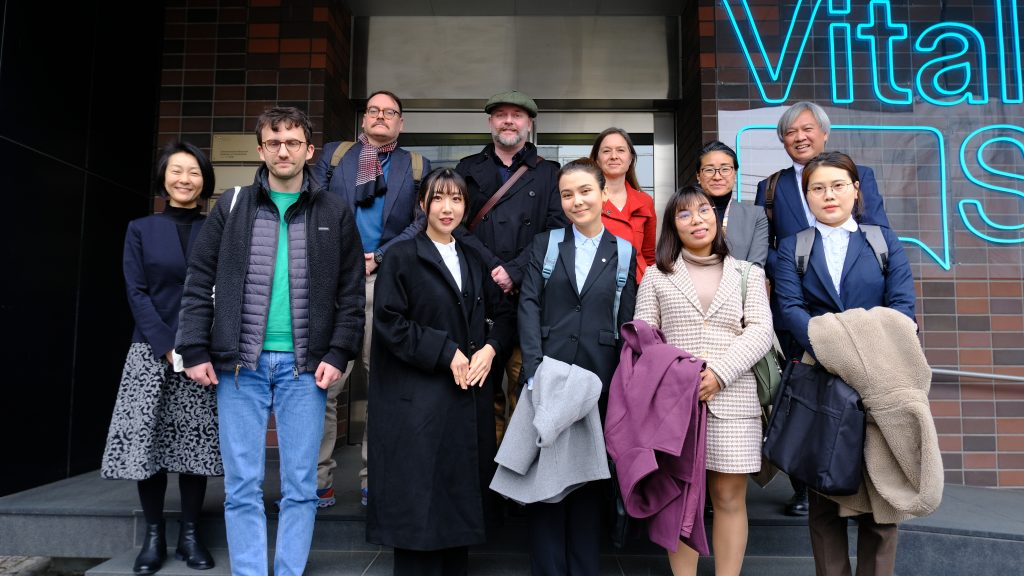Swiss Centre for Design and Health (SCDH) Team Meeting with Digitally Inclusive, Healthy Ageing Communities (DIHAC) study team in Tokyo
Digitally Inclusive Healthy Ageing Communities (DIHAC) study team was invited to have an exchange meeting with the team of Swiss Centre for Design and Health (SCDH) at the Embassy of Switzerland in Japan, 5-9-12 Minami Azabu, Minato-ku Tokyo 106-8589 – Japan on 5th March 2024.

Figure 1: Swiss Centre for Design and Health (right) meeting the DIHAC study team (left)
SCDH participants were Mr. Stefan Sulzer, Managing Director, SCDH, Dr. Minou Afzali, Head of Research, Dr. Jan Eckert, Head of Living Lab, and Department Managing Director, and Mr. David Wollschlegel, Interaction Designer.
Ms. Kyoko Marumo Suzuki, Head, Science & Technology Office Tokyo, Embassy of Switzerland in Japan and Ms. Anne-Mai Do, Project Manager, Science & Technology Office Tokyo, Embassy of Switzerland in Japan also participated in the meeting.
 Figure 2: PI presenting DIHAC study research project profile (2021-2026)
Figure 2: PI presenting DIHAC study research project profile (2021-2026)
DIHAC study team from Juntendo University comprised Associate Professor Dr. Myo Nyein Aung, Principal Investigator of DIHAC study, Department of Global Health Research, Graduate School of Medicine, Juntendo University, Lecturer Co-PI Dr Yuka Koyanagi, Juntendo University and Tokyo Ariake University, DIHAC researchers from Graduate School of Medicine, Juntendo University Nadila Mulati, MSc, Myat Yadana Kyaw MD, Li Li MSc, and Thet Htoo Pan MD.

Figure 3: SCDH team, DIHAC team and Embassy officers in front of the Embassy of Switzerland, Tokyo
Dr. Jan introduced the structure, function, the global network of SCDH and diverse spectrum of design research. He emphasized the importance of prevention. Dr Minou explained interdisciplinary research projects ongoing at SCDH. SCDH team introduced new ideas of care facilities and, sustainable designs initiated across Switzerland and evidence-based innovation at the Living Lab of SCDH.
DIHAC study team presented the profile of 5 years project with diverse healthy ageing programs and digital inclusion programs for older persons in Japan, South Korea, Singapore, Thailand and India. Two teams exchanged the evidence of eliminating digital divide in Asia and Europe and addressed ongoing digital facilitation programs in Japan. Collaboration with global network and implication of the DIHAC study results was explained by PI and co-PI. Nadila presented how digital polices and health policies paths interacted, Pan about the digital skills measurement in three countries, Myat about e-Health literacy measurement in three countries, Li Li about AI-IoT mediated wellness monitoring and telemedicine at primary health care post in Rural area of South Korea.
SCDH actively shared research finding of broad-band digital divide in Europe. The teams exchanged research, policy and programs in Switzerland vs. Japan regarding the healthy ageing and long-term care and the role of volunteers for healthy ageing. SCDH expressed their interest in community integrated intermediary care model (CIIC)
Meeting and dialogues took place from 9:30 am until 11:30 am. The event was a very important cross-cultural exchange leading to future collaborations. DIHAC study team expressed sincere thanks to the Embassy of Switzerland in Japan for hosting the event.
